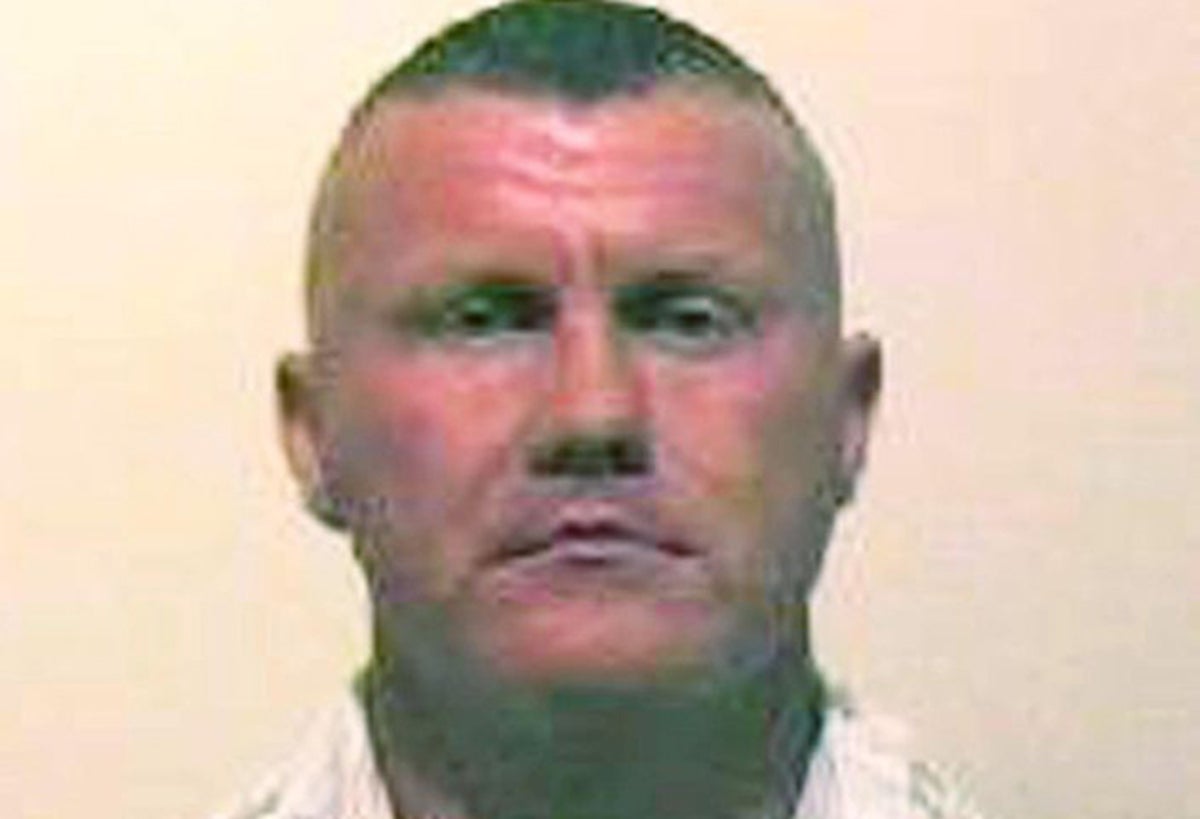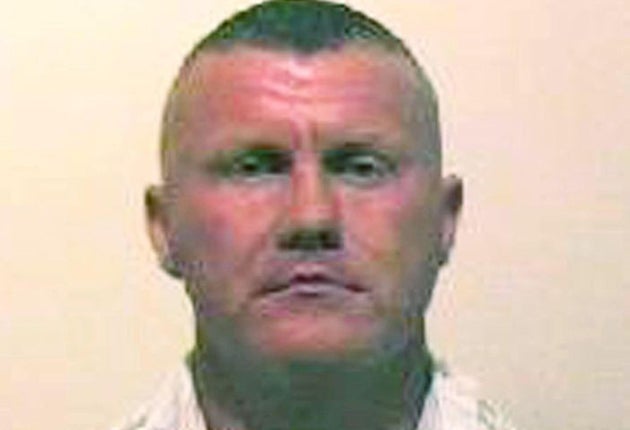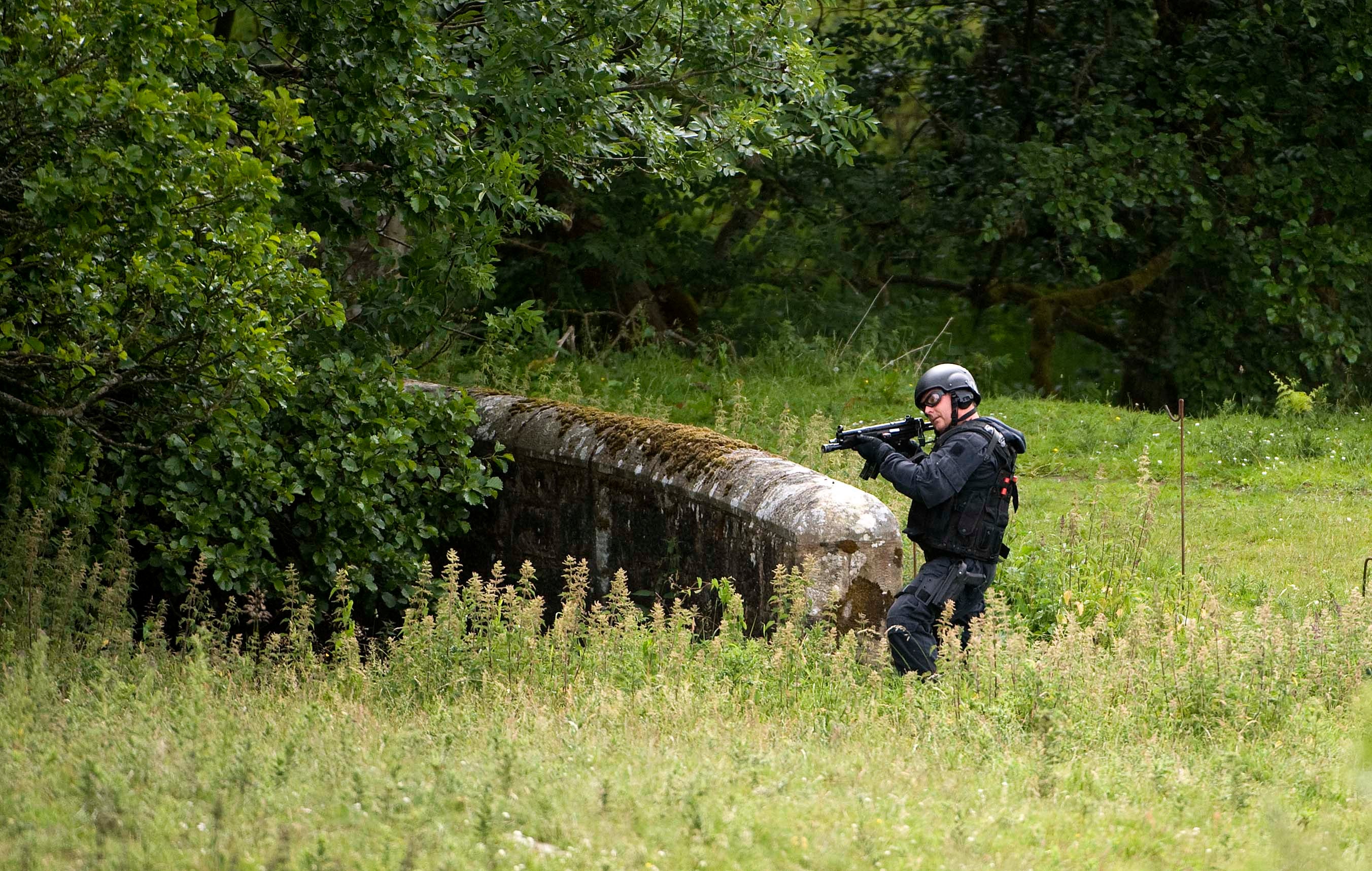
ITV’s new true crime drama, The Hunt for Raoul Moat, tells the astonishing story of Britain’s biggest manhunt, which took place in 2010 after Moat – a former bouncer and bodybuilder – shot three people just days after being released from prison.
The three-parter focuses on the innocent victims of Moat’s crimes – Christopher Brown, Samantha Stobbart and PC David Rathband – as well as the police officers who put themselves in the firing line in their quest to apprehend Moat, and the local journalist who sought to tell Moat’s real story.
Lee Ingleby stars as senior Northumbria Police Officer Neil Adamson, with Sonya Cassidy playing local journalist Diane Barnwell and Matt Stokoe portraying Moat.
Certain details – such as footballer Paul Gascoigne’s unlikely involvement in the case – have been left out of the dramatisation.
Below is a summary of the true story that inspired The Hunt for Raoul Moat.
How the real-life manhunt unfolded
On 1 July 2010, Moat was released from prison. He had just served an 18-week sentence for assaulting a nine-year-old relative. The 37-year-old former bodybuilder was around 6ft 3in tall, 17-stone and prone to “eruptions of anger”.
Two days after his release, Moat went to the house where his ex-girlfriend Stobbart (with whom he shared a young daughter) and her new partner, 29-year-old karate instructor Brown, were staying.

It was here that Moat shot Brown at close range with a shotgun, killing him. He also fired into the building, wounding Stobbart in the arm and abdomen. Her wounds were not fatal and she survived.
On 4 July, Moat struck again, opening fire on Police Constable Rathband who was sitting in a police vehicle. Rathband survived the shooting but was permanently blinded and died by suicide in February 2012 after struggling to come to terms with his injury.

Moat had taunted the police before and after Rathband’s shooting, warning them what he was going to do and then telling them that they were not “taking me seriously enough”.
In response, 160 armed officers were deployed to find the criminal, which represented around 10 per cent of those available in England and Wales at any one time.
At least 10 armoured anti-terrorist vehicles were shipped over from Northern Ireland while snipers, dogs, helicopters and even an RAF fighter jet were deployed in the search.
Days into the manhunt, police secretly recruited TV survival expert Ray Mears to help track Moat's movements. Mears later said he’ll never know if he was responsible for flushing Moat out, but he believes he and the search team were within 20 metres of him.
On 9 July, Moat was discovered hiding in the National Trust's Cragside estate in the parish of Cartington. A tense, hours-long standoff ensued with the criminal holding a sawn-off shotgun to his neck.
It was at this point that Gascoigne arrived, claiming he knew Moat and had brought him chicken and lager. He was not allowed access to the negotiation.
In the early hours of the following morning, shots were heard, with Moat sustaining a gunshot wound that killed him. A coroner ruled the following week that Moat had died by suicide after shooting himself in the head.
Following Moat’s death, several of his associates were arrested on suspicion of assisting the murderer. Karl Ness and his friend Qhuram Awan both received life sentences for conspiracy to murder and attempted murder.
The Hunt for Raoul Moat starts on ITV1 and ITVX on Sunday, 16 April. Episode two airs Monday, 17 April and episode three airs Tuesday, 18 April.







